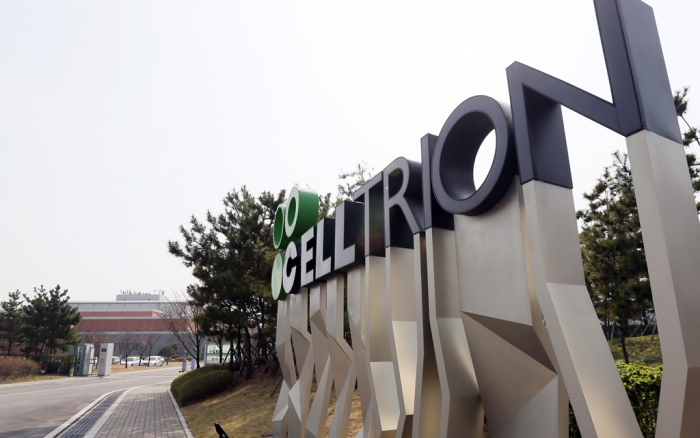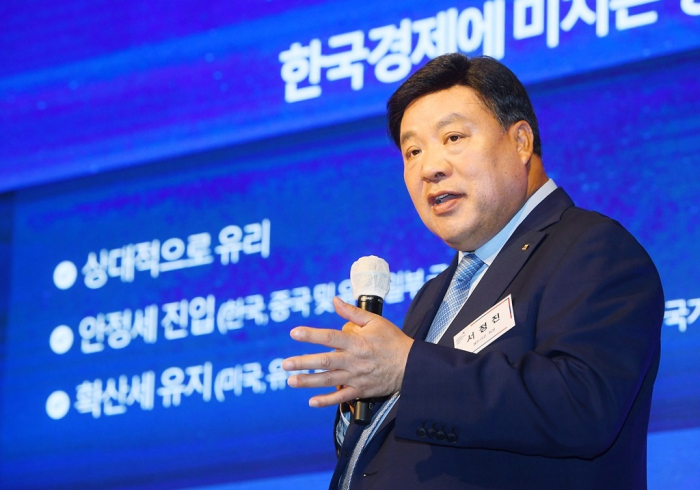Bio & Pharma
Celltrion puts TakedaŌĆÖs assets up for sale after 3 years
The S.Korean biosimilar giant plans new acquisitions after unloading Asia-Pacific sales rights for TakedaŌĆÖs products acquired in 2020
By Jun 18, 2023 (Gmt+09:00)
3
Min read
Most Read
Alibaba eyes 1st investment in Korean e-commerce platform


Blackstone signs over $1 bn deal with MBK for 1st exit in Korea


NPS loses $1.2 bn in local stocks in Q1 on weak battery shares


OCI to invest up to $1.5 bn in MalaysiaŌĆÖs polysilicon plant


Korea's Lotte Insurance put on market for around $1.5 bn



South KoreaŌĆÖs Celltrion Inc. has put its Japanese Takeda Pharmaceutical Co.'s primary care assets acquired in 2020 on sale as the biosimilar giant is raising money to transform into a drug developer and considering investments of billions of dollars in acquisitions.
Celltrion selected JPMorgan Chase & Co. as manager to sell the sales rights for TakedaŌĆÖs pharmaceutical products and over-the-counter (OTC) products in Asia Pacific excluding South Korea, according to bio-industry sources in Seoul on Sunday. A number of major global pharmaceutical companies reportedly showed interest in the takeover.
Celltrion in June 2020 bought for $278 million the rights for patents, trademarks, permits and sales of 18 primary care assets for TakedaŌĆÖs pharmaceutical products sold in nine Asia Pacific countries such as South Korea, Thailand, Taiwan, Singapore, Malaysia and Australia.┬ĀThose pharmaceutical products included diabetes treatment Nesina and hypertension medicine Edarbi, as well as OTC drugs such as cold medicine Whituben.
The takeover came as the South Korean company was aiming to become a global biopharmaceutical maker by strengthening its biosimilar and synthetic drug businesses while expanding its markets into Southeast Asia and Australia.
But global major pharmaceutical and biotechnology companies such as Pfizer Inc. and GSK Inc. considered sales splits of OTC drug businesses, which lost economic added value at the time.
NEW STRATEGY IN NEW ENVIRONMENT
Celltrion has had to modify its strategy as the global biosimilar market condition has changed.
Pharmacists are allowed to prescribe medications, modify drug therapy, give vaccines and conduct lab tests in some US states, while the global biosimilar market has been growing faster than expected with patents of many famous original drugs expired.
The companyŌĆÖs OTT drug business logged a mere 10% operating profit margin last year, just a third of the nearly 30% margin from its biosimilars such as Remsima SC, a subcutaneous injection-type medication for autoimmune disorders.
Such a relatively poor performance was known to cause the company to have decided to sell the sales rights for TakedaŌĆÖs products in Asia Pacific excluding South Korea, industry sources said.
RETURNING FOUNDERŌĆÖS AMBITION
Celltrion Group founder and Chairman Seo Jung-jin, who in March returned to management two years after retirement, unveiled a goal to make the company a global bio-industry leader generating 40% of its sales from new drugs and the rest from biosimilars.

ŌĆ£We will not seek rights offerings nor increase debts although research and development costs for new drug development will rise,ŌĆØ Seo said at that time.
The sale of TakedaŌĆÖs assets is likely to help the group secure the necessary funds as it is scheduled to work on clinical trials for 10 candidates next year.
Seo also vowed to acquire other companies for growth although he will not have a finger in every pie.
The bioindustry has been closely watching CelltrionŌĆÖs takeover targets since the company dropped the bid for the biopharma solutions unit of the US-based Baxter International Inc. last month, a deal estimated at $4 billion.
ŌĆ£We will consider acquisitions of companies, especially those with bio platform technology such as messenger ribonucleic acid (mRNA), by raising funds of 4 trillion won-5 trillion won,ŌĆØ Seo said. ŌĆ£We will be able to spend the money in the third and fourth quarters of this year.ŌĆØ
Celltrion currently holds 540 billion won ($421.9 million) in cash and cash equivalents available on a consolidated basis but industry sources expected the group to raise trillions of won for acquisitions through treasury stocks, bonds, SeoŌĆÖs own stakes and share swaps.
Write to Dae-Kyu Ahn and Jeong Min Nam at powerzanic@hankyung.com
┬Ā
Jongwoo Cheon edited this article.
More to Read
-
 Mergers & AcquisitionsCelltrion drops bid to acquire BaxterŌĆÖs biopharm unit
Mergers & AcquisitionsCelltrion drops bid to acquire BaxterŌĆÖs biopharm unitMay 09, 2023 (Gmt+09:00)
1 Min read -
 Bio & PharmaBiosimilar giant Celltrion to transform into drug developer
Bio & PharmaBiosimilar giant Celltrion to transform into drug developerMar 29, 2023 (Gmt+09:00)
3 Min read -
 Bio & PharmaCelltrion founder returns to management with M&A pledge
Bio & PharmaCelltrion founder returns to management with M&A pledgeMar 28, 2023 (Gmt+09:00)
3 Min read -
 Mergers & AcquisitionsCelltrion finalizes $278mn acquisition of Takeda's primary care assets
Mergers & AcquisitionsCelltrion finalizes $278mn acquisition of Takeda's primary care assetsDec 01, 2020 (Gmt+09:00)
1 Min read
Comment 0
LOG IN


